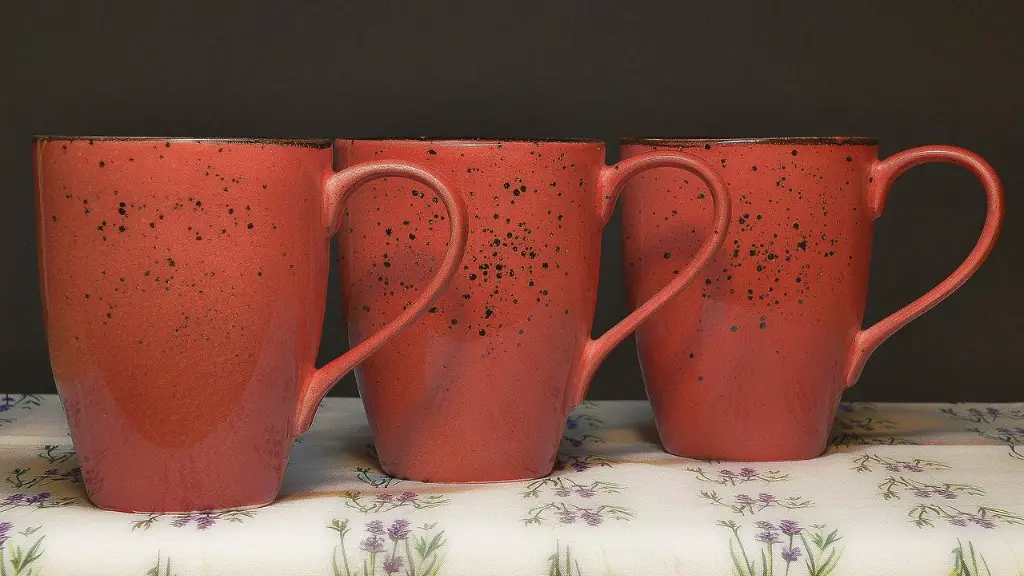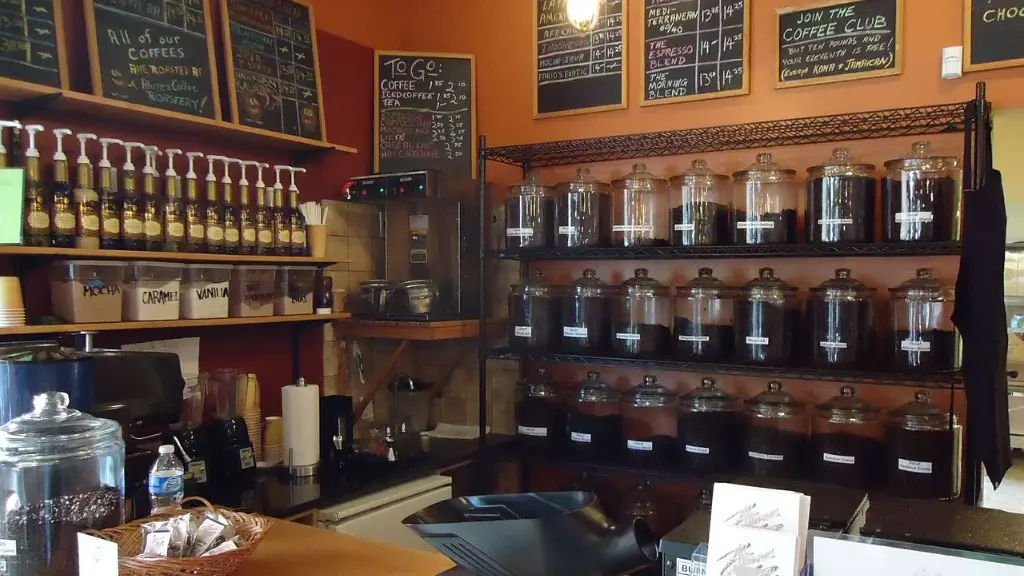Coffee shops have become increasingly popular in recent years as people look for alternative places to work outside of the office. Many coffee shops offer free WiFi and comfortable seating, making them ideal for people who work remotely or need a change of scenery. But how much does it cost to insure a coffee shop?
There are a few factors that will affect the cost of insurance for a coffee shop, including the location, size, and type of business. For example, a coffee shop in a high-crime area will likely pay more for insurance than a shop in a safe neighborhood. The type of coverage you need will also affect the cost. Business insurance for a coffee shop can range from a few hundred dollars to several thousand, depending on the size and type of business.
To get an accurate estimate of how much it would cost to insure a coffee shop, speak to an insurance agent who specializes in business insurance. They will be able to give you a better idea of the coverage you need and how much it will cost.
This is a difficult question to answer without more information. The type of insurance, the location of the coffee shop, the size of the business, etc. all play a role in how much insurance would cost. A business owner can contact an insurance agent to get a quote for their particular business.
What kind of insurance do you need for a coffee shop?
Property insurance helps cover your coffee shop, its contents, equipment, and inventory from a covered claim. General liability helps pay your legal expenses if you’re responsible for someone getting hurt in your coffee shop or if you damage someone else’s property. Property insurance typically covers damage from fire, theft, and some types of weather damage. General liability typically covers bodily injury and property damage liabilities.
As a business owner, it’s important to be aware of the average costs of common types of business insurance. This will help you budget for your own insurance needs and ensure that you are adequately covered.
General liability insurance is the most basic type of coverage, and it protects your business from third-party claims for bodily injury or property damage. The average monthly cost for this coverage is $30, or $360 per year.
Commercial property insurance covers the physical premises of your business, as well as any contents or inventory. The average monthly cost for this coverage is $63, or $756 per year.
Inland marine insurance protects against loss or damage to goods in transit. The average monthly cost for this coverage is $14, or $169 per year.
Cyber liability insurance protects your business from claims arising from data breaches or cyber attacks. The average monthly cost for this coverage is $12375, or $1,4854 per year.
How much money do you need for a coffee shop
Opening a coffee shop can be a costly endeavor, with the average cost falling somewhere between $80,000 and $300,000. This cost can be lower if you opt for a coffee food truck or kiosk instead of a traditional brick-and-mortar shop, but it can also be higher if you include both seating and drive-thru coffee. No matter what route you choose, be prepared to spend a decent amount of money to get your business off the ground.
Most places want coverage for property and liability. Workers’ compensation coverage is required by law in most states if you have employees. However, it may be helpful to think about:
Property insurance: This will cover the value of your property in the event it is damaged or destroyed.
Fire coverage: This will cover the cost of repairs if your property is damaged by fire.
Business liability coverage: This will protect you from lawsuits if your business is sued for damages.
Business income coverage: This will reimburse you for lost income if your business is forced to close due to damage to your property.
Workers’ compensation insurance: This will cover the medical expenses of any employees who are injured while working for your business.
Umbrella insurance: This will provide additional liability coverage above and beyond what is included in your other policies.
What insurance do I need to start a food business?
Product liability insurance is an important coverage for any business involved in the food manufacturing or preparation industries. This coverage can protect your business against any legal claims of injury or damage that may occur, whether you are involved in the production, sale, or delivery of a food product. Having this coverage in place can help to give you peace of mind in knowing that your business is protected against any potential liability claims.
Insurance is an important part of any business, but there is no one-size-fits-all policy. The type of coverage you need will depend on the type of business you have, the industry you’re in, and the size of your business. A real estate agent will have different risks than a building company, café, or retail store, so it’s important to tailor your insurance coverage to your specific needs.
How much is a $2 million dollar insurance policy for a business?
The average cost of a Business Owners Policy (BOP) for a small business with coverage of $1 million per year is $1,217. The median cost is $638, which means that half of small businesses pay less than $638 per year for their BOP policy.
A general liability insurance policy for your startup or small business will cost between $400 and $750 every year or between $42 and $92 per month. This isn’t a huge expense considering the peace of mind and protection you’ll get. This policy safeguards your business from basic liability damages and lawsuits.
Can you write off insurance for a small business
Yes, business insurance is tax deductible. For instance, if you’re operating a for-profit company, your business expenses, including insurance, can be deducted from your taxable income if it is both ordinary and necessary. An ordinary business expense is common and accepted in your business or industry.
As a coffee shop owner, you can expect to make between $60,000 and $160,000 annually. Your salary will usually be between 2% and 6% of the restaurant’s sales. In a small operation, your salary may be a higher percentage of the profits, relative to how much labor you put in.
Is owning a coffee shop profitable?
There are a wide range of profit margins for coffee shops, depending on a variety of factors. The average profit for a cafe ranges between 25% and 68%, according to different estimates. For coffee shops that also roast their own coffee, the profit margin is even higher, at around 879%. Ultimately, it is important to consider a variety of factors when determining the profitability of a coffee shop.
Starting a coffee shop can be a great way to earn a living while doing something you love. However, there are a few things you need to keep in mind in order to give yourself the best chance for success.
First, you’ll need to write a business plan. This will help you map out all the details of your business, including your start-up costs, your target market, and your long-term goals.
Next, you’ll need to find the right location for your coffee shop. This means considering things like foot traffic, parking, and competition from other businesses.
Once you have a location in mind, you’ll need to develop a floor plan. This will help you determine how much space you need, what type of equipment you’ll need, and where everything will be located within your shop.
You’ll also need to hire an accountant to help you keep track of your finances and make sure you are compliant with all applicable laws and regulations.
Finally, you’ll need to find local funding options to help you cover the costs of starting your coffee shop. This may include loans, grants, or venture capitalists.
With all of this in mind, you should also be sure to save money for your personal
What is shop owner insurance
The Shopkeeper’s Insurance Policy is a combination of eleven sections that cover risks faced by shopkeepers and traders. The policy covers items such as building contents, money, pedal cycles, plate glass, signs, baggage, personal accident, fidelity guarantee, liability and business interruption. This insurance policy provides protection for shopkeepers in the event of loss or damage to their business premises, stock or equipment. It also covers them for personal injuries sustained by them or their employees, and for any liability claims made against them.
Most small businesses need to purchase at least the following four types of insurance: Property Insurance, Liability Insurance, Business Auto Insurance, and Workers Compensation Insurance.
Property insurance protects your business’ physical property, such as your office or store, from damage or theft.
Liability insurance protects your business from claims of damage or injury caused by your business’ actions.
Business auto insurance protects your business from claims arising from the use of vehicles for business purposes.
Workers compensation insurance protects your business from claims by employees who are injured or become ill as a result of their work for your business.
Why is shop insurance required?
A shopkeeper insurance policy covers all the probable risks and perils faced by small to medium sized shop owners. It provides protection for the property and the interests of the insured in the business venture. Loss/damage to the building is covered under this policy.
If you are selling food goods, you must have insurance. There is potentially a higher risk of harm to customers compared to other small businesses because your customers will be consuming the products.
Final Words
The cost of insurance for a coffee shop will vary depending on the location, size, and type of business.
Based on the information provided, it is difficult to determine how much insurance would be for a coffee shop. There are numerous factors that would affect the cost, including the size of the shop, the location, the type of coverage, and the deductible.





